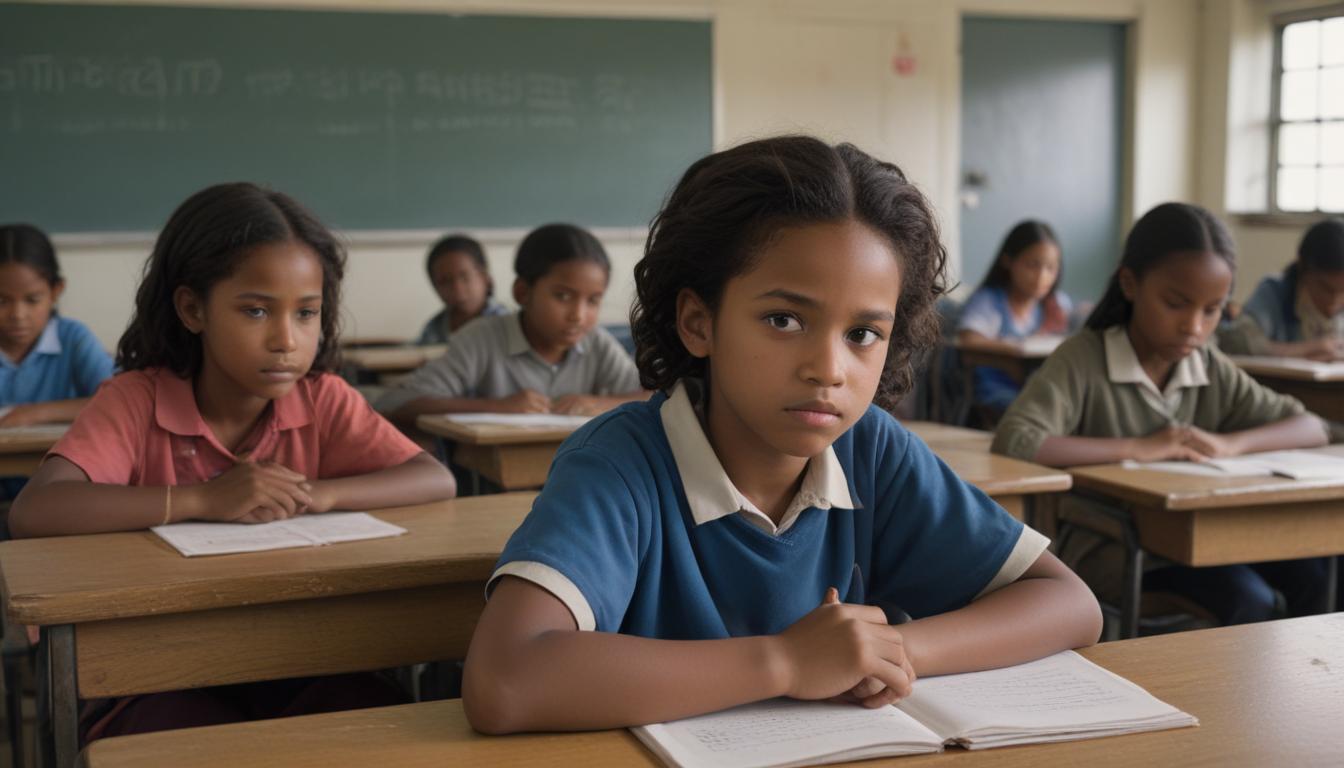Now Reading: Poverty’s Toll on Education
-
01
Poverty’s Toll on Education
Poverty’s Toll on Education

Breaking the Cycle The Unseen Impact of Poverty on Education
Have you ever looked at a classroom and wondered why some bright, capable students struggle to keep up? It’s a frustrating sight for educators, parents, and community members alike. We often search for simple answers, pointing to a lack of motivation or attention. But the reality is often far more complex and rooted in a challenge many of us never have to face daily, the crushing weight of poverty. The gap between students isn’t just about effort; it’s about opportunity, resources, and stability.
The good news is that understanding the problem is the first step toward solving it. This is not an unsolvable crisis. By peeling back the layers, we can see exactly how poverty creates significant, often invisible, barriers to a child’s education. More importantly, we can identify effective strategies to dismantle these barriers, giving every student a fair chance to succeed and reach their full potential. This article will guide you through the core challenges and the actionable solutions that can make a real difference.
The Daily Hurdles Before the School Bell Rings
For a child living in poverty, the school day doesn’t start when they walk through the classroom door. It begins with a series of hurdles that can exhaust their physical and mental energy long before the first lesson. Chronic stress, food insecurity, and unstable housing are not just social issues; they are profound educational barriers. A brain that is worried about where its next meal is coming from or whether the lights will stay on cannot fully engage with algebra or historical texts. This “invisible backpack” of worry and want is heavy, and it directly impacts a child’s ability to be present and ready to learn.
Furthermore, health and wellness are luxuries that many low-income families cannot afford. A lack of access to regular medical and dental care means that preventable issues like asthma, infections, or painful toothaches can lead to chronic absenteeism. When a child frequently misses school, they fall behind, and catching up becomes a monumental task. This cycle of poor health and missed school days widens the achievement gap. The toxic stress associated with living in poverty also has a documented effect on brain development, impairing memory, focus, and executive function—the very skills needed for academic success.
The Widening Gap Inside the Classroom
Once a child from a low-income household arrives at school, the disparities often continue and can even become more pronounced. The resource gap is one of the most significant factors. While their more affluent peers may have homes filled with books, access to the latest technology, and dedicated quiet spaces for homework, students in poverty often have none of these. This lack of resources at home makes it incredibly difficult to complete assignments, conduct research, or simply engage in the kind of exploratory learning that builds a strong academic foundation.
Parental involvement is another critical area affected by poverty. This is not due to a lack of care, but a lack of time and energy. Parents working multiple low-wage jobs with inflexible hours cannot easily attend parent-teacher conferences, volunteer in the classroom, or spend hours helping with homework. This reality creates a disconnect between home and school, leaving students without a vital support system. Over time, these factors compound, contributing to issues like the “summer slide,” where students from low-income families lose significant academic ground over the summer break due to a lack of access to camps, tutors, and enrichment programs.

Charting a Path Forward Solutions and Strategies
While the challenges are immense, they are not insurmountable. Meaningful change is possible when schools, communities, and policymakers work together to create a supportive ecosystem for every child. The focus must shift from simply expecting students to overcome their circumstances to actively removing the barriers that stand in their way.
Supporting Students Directly in Schools
Schools can become powerful agents of change by implementing programs that address students’ most immediate needs. Providing universal free breakfast and lunch programs ensures that no child is trying to learn on an empty stomach. Integrating on-site health services, mental health counselors, and social workers can help manage the physical and emotional tolls of poverty, reducing absenteeism and improving focus.
Academically, schools can level the playing field by offering high-quality, high-dosage tutoring and creating robust after-school programs that provide a safe and resource-rich environment for homework and enrichment. By becoming a community hub that directly counteracts the effects of poverty, a school can transform from a place of learning into a place of holistic support, ensuring students have the stability they need to thrive.
Building Stronger Communities and Policies
Ultimately, schools cannot do this work alone. The most effective solutions involve a broader community and policy-level approach. This includes creating “community schools” that partner with local non-profits to offer wrap-around services, connecting families with housing assistance, job training, and affordable childcare. When the entire community invests in the well-being of its families, the positive effects ripple directly into the classroom.
At the policy level, advocating for systemic changes like a living wage, expanded access to affordable healthcare, and increased investment in high-poverty neighborhoods addresses the root causes of educational inequity. By tackling poverty head-on, we do more than just improve test scores; we invest in the future of our communities. Breaking the cycle of poverty and its impact on education is a collective responsibility, and it is one of the most profound investments we can make in creating a more just and prosperous society for all.


































